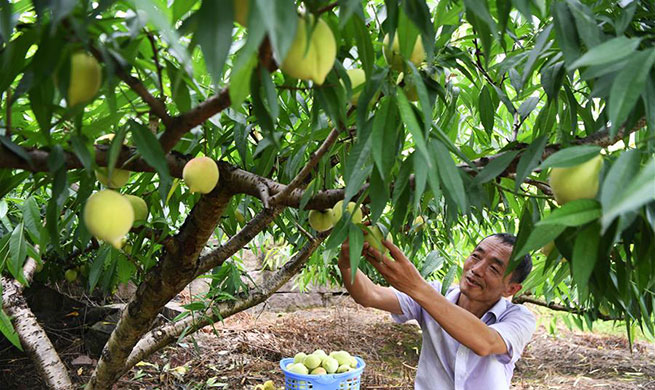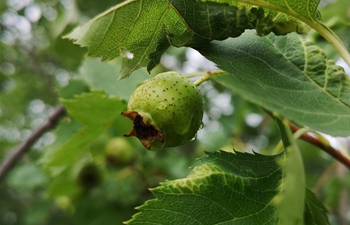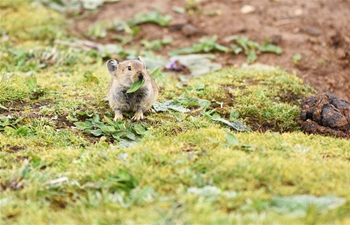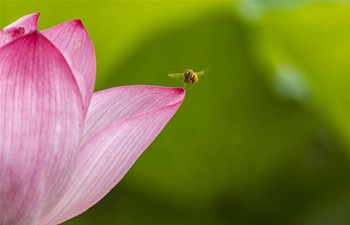BERLIN, July 11 (Xinhua) -- Ruegenwalder Muehle, a German meat-producing family business founded in 1834, has announced that it will stop the production of its Currywurst in order to expand its plant-based range.
Ruegenwalder Muehle was the first German meat producer to offer vegetarian and vegan products back in 2014. It currently offers 28 meat-free alternatives to traditional German favorites such as salami, meatballs or schnitzel.
"At the market launch in 2014, we were in part still laughed at," Godo Roeben, managing director of the company, told the German newspaper F.A.Z.
"At the beginning we wanted to produce five tons a week, but within a very short time we had already reached one hundred tons," added Roeben.
The family business is expecting its share of meat-free products to reach 40 percent by 2020 and was planning to "convert all our products to vegan as soon as possible. In the next five years we could do without eggs at all," Roeben noted.
"We are the market leader in plant-based meat substitutes in Germany with a current market share of 38 percent," Roeben told the newspaper Handelsblatt, adding that "Beyond Meat makes as much from sales in the vegetarian sector as we did this year."
The U.S. company Beyond Meat produces meat alternatives derived from plants and has become very popular. After going public in May, its share shot up by more than 160 percent and recorded the best initial public offering (IPO) on the U.S. stock market since 2000.
When asked whether the success of Beyond Meat made him jealous, Roeben said "not at all, the hype is also good for us. The more people who engage with plant-based meat, the better."
In addition to discontinuing its Currywurst, Ruegenwalder Muehle is planning to expand its Bad Zwischenahn site by 2022 and only make vegetarian and vegan products. The investment for this expansion would be in the "mid to high double-digit millions," Roeben added.
More and more traditional sausage and meat producers in Germany are discovering meat alternatives for themselves and the market recorded strong growth last year. Almost every German supermarket sells alternatives made from soy or peas.
"We are seeing that our customers are increasingly opting for plant-based alternatives and animal-free production," Annett Entzian, manager for corporate responsibility at ALDI South, told Xinhua on Thursday.
The German discount store ALDI had "been accompanying and supporting this trend for several years now by expanding and constantly developing our range" and currently offer around 35 plant-based alternatives for meat and fish products in its permanent range, Entzian added.
Investment bank JP Morgan has estimated that the global market for plant-based meat products will grow to 100 billion U.S. dollars in 15 years, up to a hundred times the current level.
Roeben believes that Germany is lagging far behind on meat-free alternatives. "Other countries such as Singapore or Canada are releasing millions for research into alternative proteins. Only the Germans are still sleeping."
Ruegenwalder Muehle conducted a lot of its own research on meat-free products but "there is still a bit of research to be done, so we are trying to convince politicians that Germany is going to lead the way," Roeben told Handelsblatt newspaper.
Germany was "the leading nation for sausages and meat products," stressed Roeben, adding that "it would be great if we were also leaders in plant-based meat alternatives."













